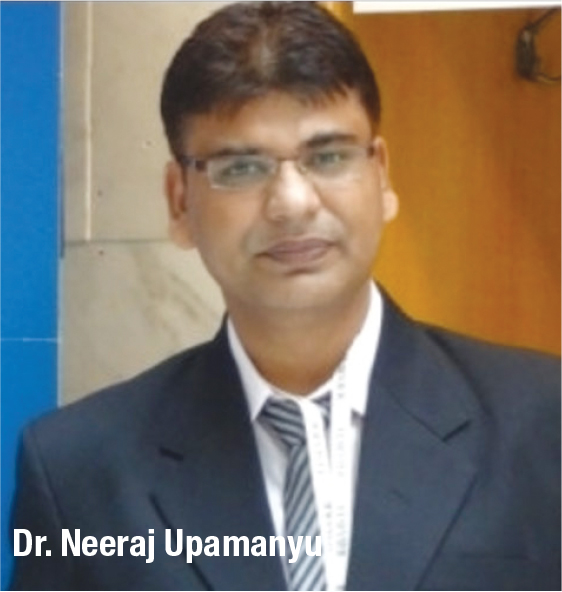 – Aditi Maheswari (Bhopal)
– Aditi Maheswari (Bhopal)
Even as the coronavirus pandemic ravages the Hindi heartland state of Madhya Pradesh (pop. 86.8 million) – 492,276 active cases, and 5,519 fatalities as on April 30 – a fake colleges and universities scandal has emerged as a distracting sideshow which is creating additional problems for the state’s BJP government.
An enquiry report written by L.L. Kori, additional director of higher education, Sagar division, and submitted to the state’s home ministry on March 15, confirms that two ‘ghost’ teachers training institutes — NRS College and Sri Ram College in Chhatarpur district affiliated with Maharajah Chhatrawal Bundelkhand University (MCBU, est.2015) — have been issuing fake B.Ed degrees for over three years. “Yes. I have submitted a report to the home ministry. However, I cannot dis[1]cuss the contents or conclusions of the report with you,” Kori informed your correspondent.
According to a Times of India correspondent who visited the common premises of these two colleges, one of them is in its initial stages of construction while there is no trace of Sri Ram College — “not even a sign board”. That these two non-existent ghost colleges professedly certified by the Delhi-based National Council for Teacher Education (NCTE) and affiliated with MCBU have been certifying teachers for years without detection, has created a stir in academic circles in this educationally laggard state ranked #28 in the Education Development Index (EDI) of the NUEPA (National University of Education Planning and Administration).
“This is obviously a well-oiled racket in which fraudsters in connivance with corrupt officials in MCBU are issuing forged and fraudulent B.Ed certificates to desperate youth who pay Rs.20,000-50,000 for them. This is a very dangerous development for primary and secondary education in the state. On the strength of these fraudulent certificates, youth typically bag jobs in remote government schools and draw substantial Seventh Pay Commission salaries. But since they are unqualified, the quality of education they dispense to poor rural children is the worst. This is a perfect example of corruption in the education system of Madhya Pradesh,” says Indore-based social activist Dharmendra Singh Gour who has filed several complaints with the state’s education ministry and Anandiben Mafatbhai Patel, governor of Madhya Pradesh.
Gour’s charge that government school children in this Hindi heartland state — India’s largest state in size (308,245 sq. km) — learn very little is confirmed by the Annual Status of Education Report 2018 published by the highly-respected Pratham Education Foundation (estb. 1994) — ASER 2019 and ASER 2020 focused on early years education and pandemic issues. According to ASER 2018, only 56.7 percent of children in class III (aged eight and above) in MP’s government schools can read (Hindi) alphabets and 63.5 percent can identify numerals. On the other hand, in private schools of the state 85.7 percent and 88.2 percent respectively can read alphabets and numbers. Quite obviously the quality of early childhood (anganwadi) and primary school teachers being recruited — some of them not qualified at all — by government is very poor.
Contacted by your correspondent to explain how these ghost colleges were affiliated by MCBU, Gauri Shankar Brar (assistant registrar, MCBU) said: “I know nothing about it.”
Academics in the state are inclined to pass the blame for this racket to the students’ community. “Ghost colleges and fake degrees rackets are thriving because students and their parents are ready to pay large amounts for fake degrees. They are interested in degrees rather than education. If students and parents choose higher education institutions with care and diligence, they wouldn’t exist,” says Dr. Neeraj Upamanyu, principal of the College of Pharmacy of the People’s University, Bhopal.
But blaming gullible parents and students from small town and rural communities who are swayed by the intensive advertising campaigns and smooth-talking agents of dubious colleges is a classic case of passing the buck. Quite clearly supervisory authorities all the way from UGC, NCTE, universities and state governments are guilty of negligence, if not worse. Instead of pressing state governments to prosecute fraudsters, UGC merely publishes an annual list of fake colleges and universities while state universities don’t rigorously check out affiliation applications. Neither do state governments vigorously prosecute such instances of academic fraud.
The ultimate losers of official negligence and irresponsibility at all levels are vulnerable children who are obliged to suffer fraudulent teachers.
Also read: Most infamous corruption scandals of India

























